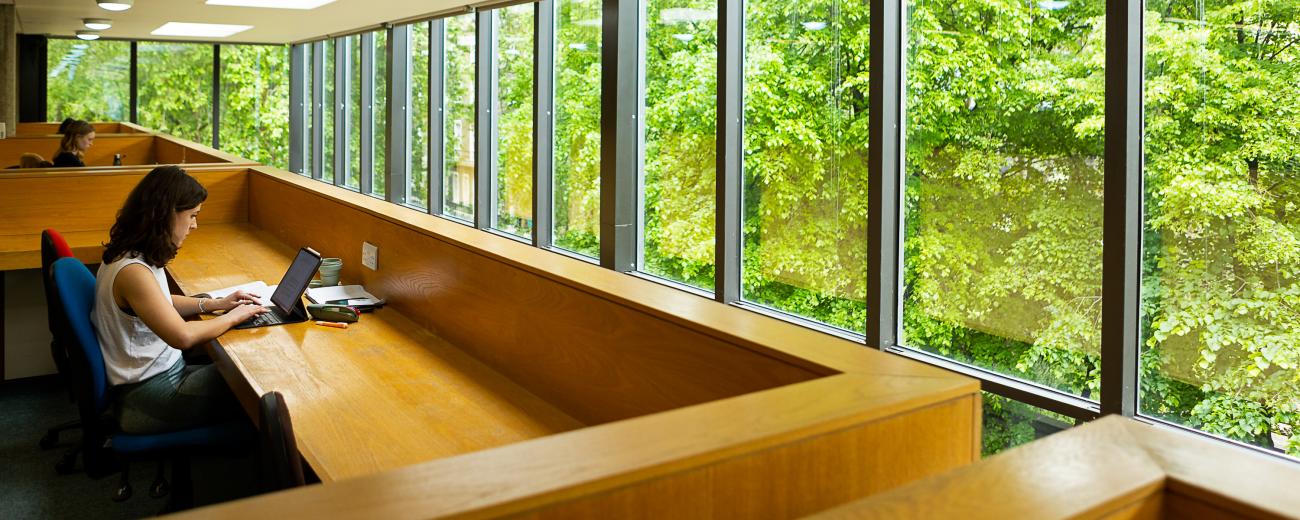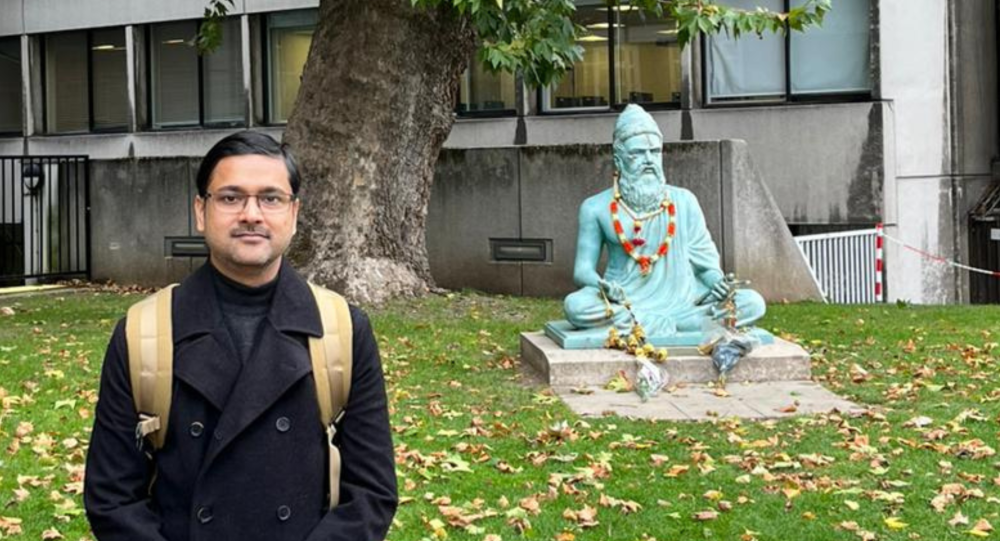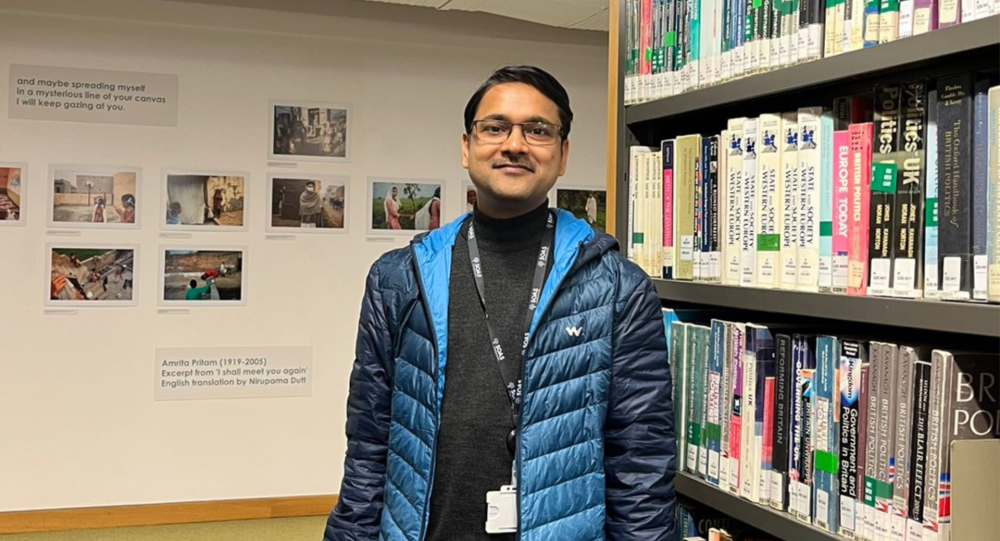How a study break helped my career in the public sector


Shireesh Mohan Khare shares why he took a study break from his public sector role to complete an MSc in Public Policy and Management and how it deepened his knowledge of public policy, connected theory with practice, and gave him new perspectives.
I’m a Deputy General Manager at the Food Corporation of India, a public sector entity of the Government of India. I recently completed an MSc in Public Policy and Management at SOAS (2022-23). My career in the public sector and an interest in gaining understanding & exploring fundamental issues behind interdisciplinary subject areas of public policy and governance motivated me to deepen my theoretical knowledge of public policy, so I took a study break to join SOAS.
I chose SOAS for its strong reputation in public policy and South Asian studies. Though I had multiple offers from various Universities, SOAS’s focus on developing societies felt most relevant to my work in India. My inner calling always knew that after my studies, I would be going back to India, so gaining knowledge that would be relevant to the socio-economic dynamics of my society and the challenges of developing societies like South Asia was more important for me.
Connecting theory with practice
I had a very rich academic experience at SOAS. We read case studies from Brazil, South Africa, Indonesia, India, Sri Lanka, Pakistan, the Middle East, and some from around Europe, Germany, the UK, and the US. The case studies from developing societies were particularly valuable, as most students came from developing societies, making the learning experience relatable and impactful. This variety allowed me to connect theoretical knowledge with real-world experiences, enriching my understanding of global public policy issues.
For example, as an Indian, if you keep on teaching me about the public policy problems of the US, I may not be able to connect with that as they have a very different governing system and socio-economic system. But when we were taught the problems of Indonesia, India, Sri Lanka, and Pakistan, we can supplement the theoretical knowledge with our own lived experience and practical knowledge.
When we were taught the problems of Indonesia, India, Sri Lanka, and Pakistan, we can supplement the theoretical knowledge with our own lived experience and practical knowledge.
A lot of my learning at SOAS also came from out-of-class discussions. Another reason why SOAS is very popular is the availability of the international community within a small area. I met people from various backgrounds from around the world. Those discussions have given many more lenses to see through. Now I can see the world through many prisms and through many lenses so when I’m given a problem or challenge, I can think of multiple perspectives.
The impact on my career
The knowledge and skills I gained at SOAS continue to influence my work. I'm still gaining new perspectives from the study materials, case studies and discussions with the professors. Public policy is about subjective reality—there is no single right solution. Governance focuses on managing order and chaos within financial, administrative, and time constraints. Additionally, ensuring social justice makes public policy management and civil services very challenging.
SOAS has given me greater perspective and clarity. In simple words, if my view was previously black and white, now it's HD with more resolution, colours and details.
SOAS has given me greater perspective and clarity. In simple words, if my view was previously black and white, now it's HD with more resolution, colours and details. My colleagues and friends have noticed the unconscious impact it’s had on me. I'm now better at analysing social contexts and giving due weight to social, cultural, and demographic factors. Before SOAS, my MBA background gave me a technocratic mindset, focused on automation and technology. Now, my approach is more humane, understanding the behavioural side of problems and the impact of socioeconomic and cultural contexts on policies.
The rewards of public sector work
In the public sector, while we may face more challenges than successes, it's a field where our work truly matters. Unlike roles that seek the limelight, we are the silent forces akin to traffic police officers or air traffic controllers whose absence would be keenly felt. In this line of work, the real reward comes from the profound impact we make.
Understanding that your decisions and actions benefit people you might never meet provides deep and lasting satisfaction. If you can embrace this mindset and find joy in the silent but significant influence you have, the public sector can be an incredibly rewarding place for you. Your work in the public sector is like a small pebble that creates waves, influencing and initiating changes in the vast ocean of public policy, striving to make a meaningful impact.
Favourite memories of SOAS
Roaming the SOAS Library was so wonderful. Even if you are not reading any book, you are reading only titles, which makes you more aware of the scale of the content available; it is good to know what you don’t know. Additionally, the support and generosity of the professors, such as Dr Pasquale Scaramozzino, Dr Alberto Asquer, Dr Vino Kanapathipillai, and Dr Jaideep Oberoi, were the highlights of my academic journey. Many of my other friends in other universities were not getting that much attention from senior professors, so that is really wonderful at SOAS.
I have gained a lot from SOAS. I continue to benefit from the SOAS network and look forward to applying the lessons learned to make a meaningful impact in public policy.
About the author
Shireesh Mohan Khare is a Deputy General Manager at the Food Corporation of India, a public sector entity of the Government of India. He completed an MSc in Public Policy and Management at SOAS




